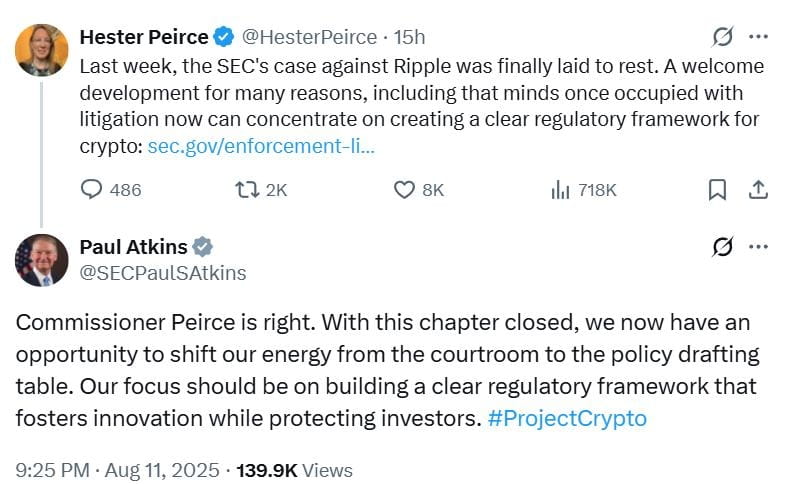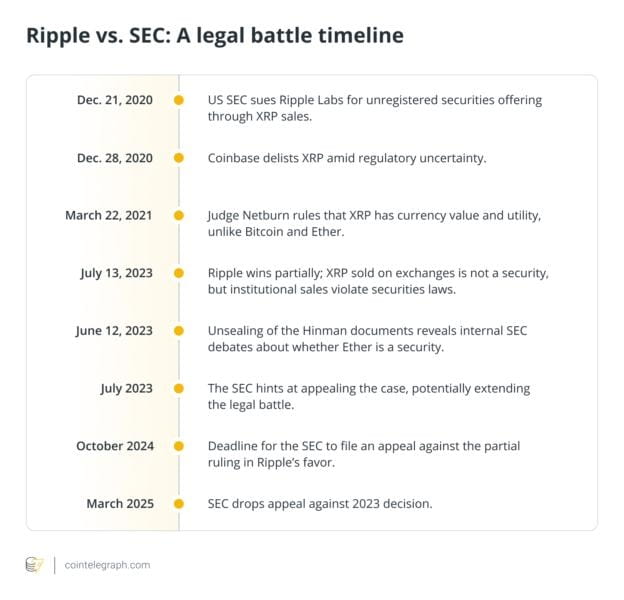SEC will focus on 'clear' regulations for cryptocurrencies after the Ripple case, says Atkins
August 12, 2025, 14:10 GMT-42 minutes of reading
The U.S. Securities and Exchange Commission (SEC) is signaling an increasing focus on developing a clear regulatory framework for cryptocurrencies after concluding one of the industry's longest legal disputes.
The SEC and Ripple Labs ended their nearly five-year dispute after both parties filed motions to withdraw their legal appeals and bear their own costs and fees, according to a document filed last Thursday with the Second Circuit Court of Appeals.
The conclusion of the case is a "welcome advancement" that ensures that "minds previously occupied with litigation can now focus on creating a clear regulatory framework for cryptocurrencies," said SEC Commissioner Hester Peirce in a post on X on Monday.
"With this chapter closed, we now have the opportunity to direct our energy from the courtroom to the policymaking table," said SEC Chairman Paul Atkins in response to Peirce's post. "Our focus should be on building a clear regulatory framework that fosters innovation while protecting investors," he added.

The SEC sued Ripple in December 2020, alleging that the company raised $1.3 billion through the unregistered sale of XRP securities. In July 2023, Judge Analisa Torres ruled that XRP was not a security when sold to retail investors but was considered a security in sales to institutions. Ripple was fined $125 million in August 2024.

The end of the case comes as lawmakers advance with the Digital Asset Market Clarity Act, known as the CLARITY Act. The bill aims to define the framework for digital asset markets.
Advancement of the CLARITY Act
Republican lawmakers and the Senate Banking Committee plan to approve the bill by September 30, despite increasing signs of resistance from Democratic Party legislators.
In early July, Democratic leaders in the House of Representatives announced a collective effort to oppose Republican attempts to pass what they call "dangerous" legislation, signaling a deepening political divide between the two parties.
"[Republicans are] doubling down by accelerating the processing of a dangerous package of cryptocurrency legislation in Congress," said prominent House Financial Services Committee member Maxine Waters, specifically criticizing the CLARITY Act and the Anti-CBDC Surveillance State Act, which seeks to prohibit the launch of a U.S. central bank digital currency.
